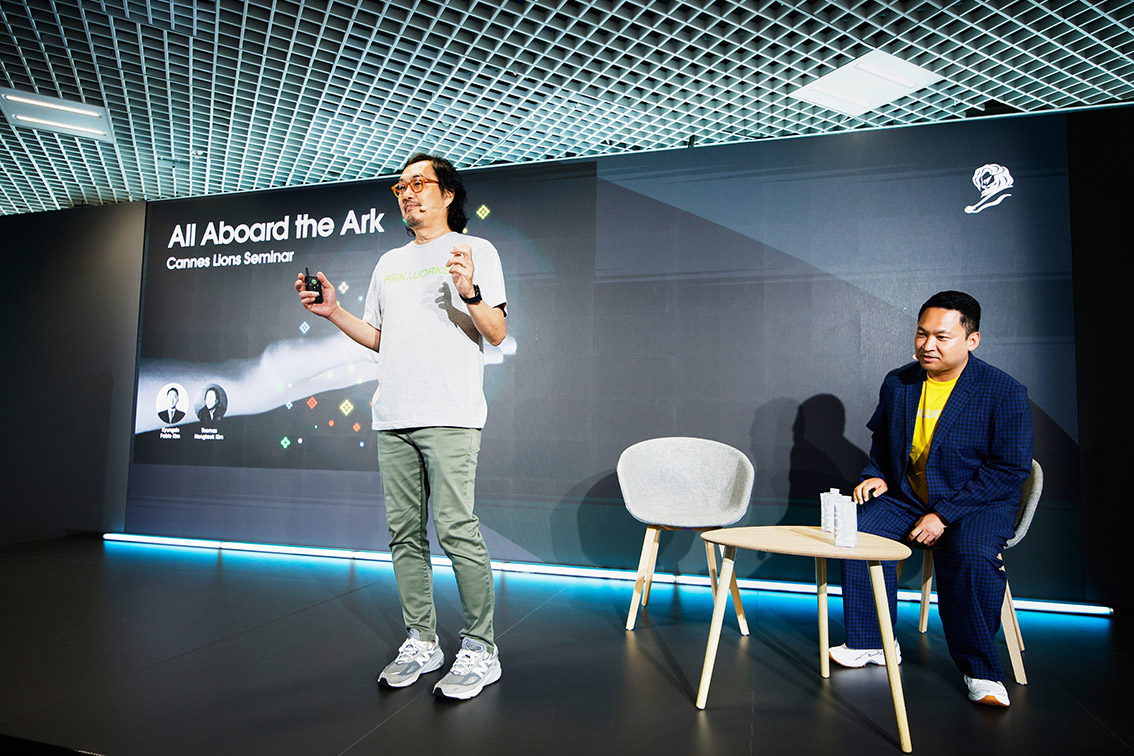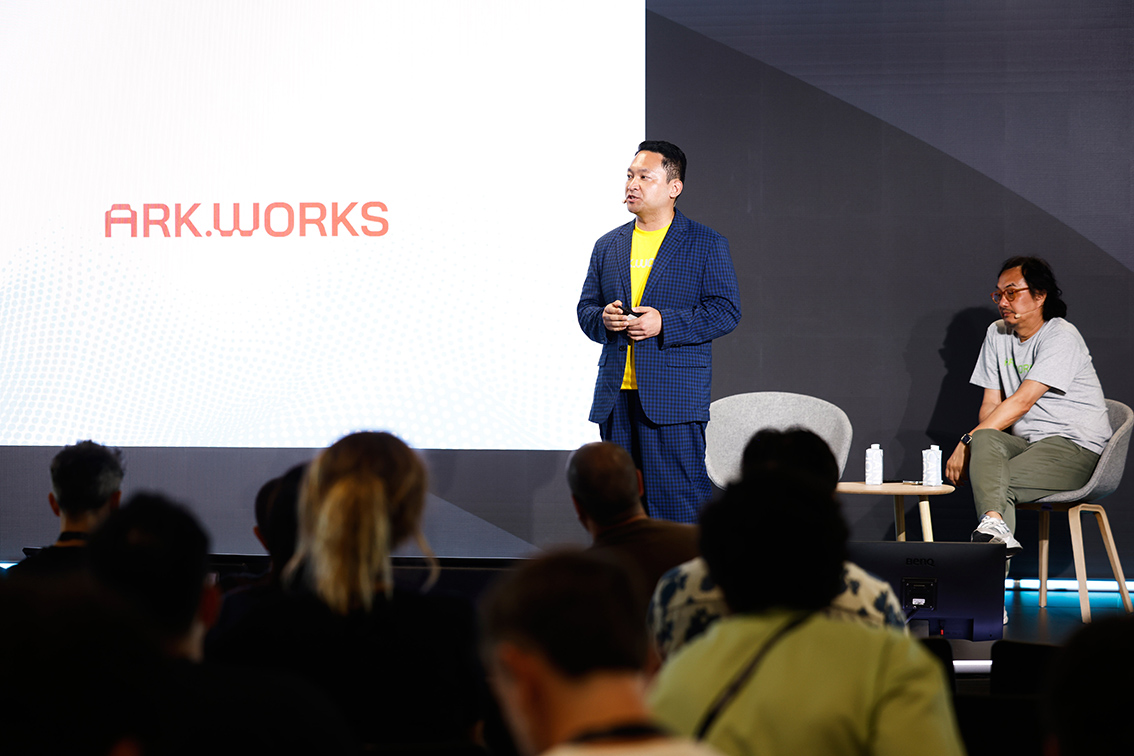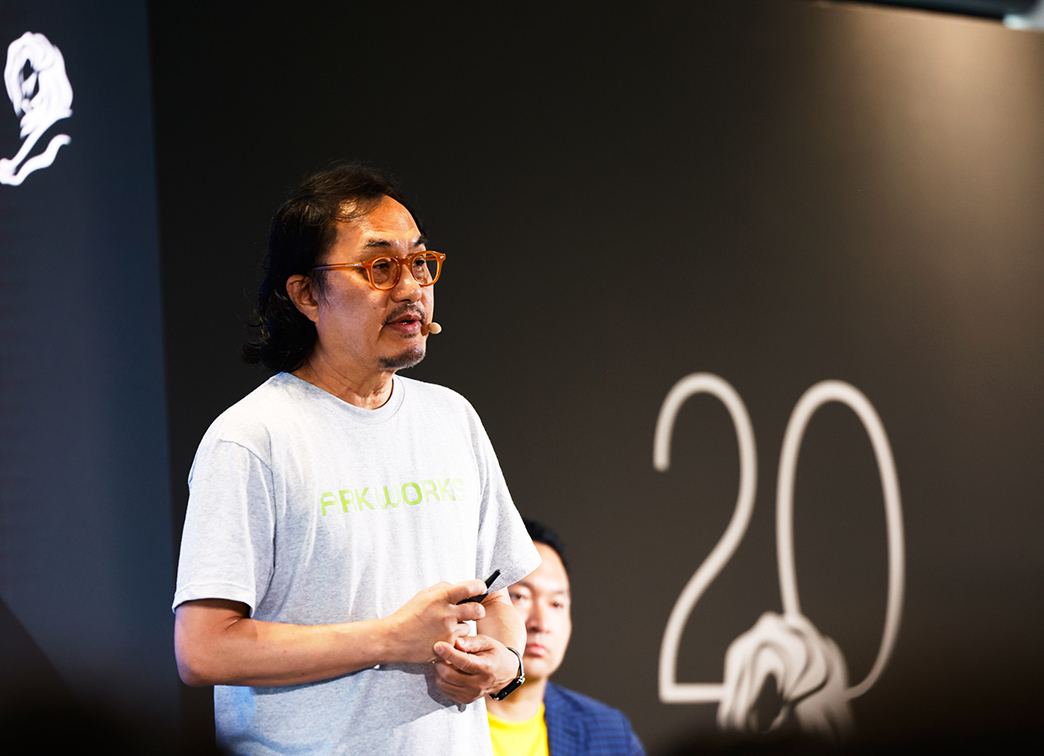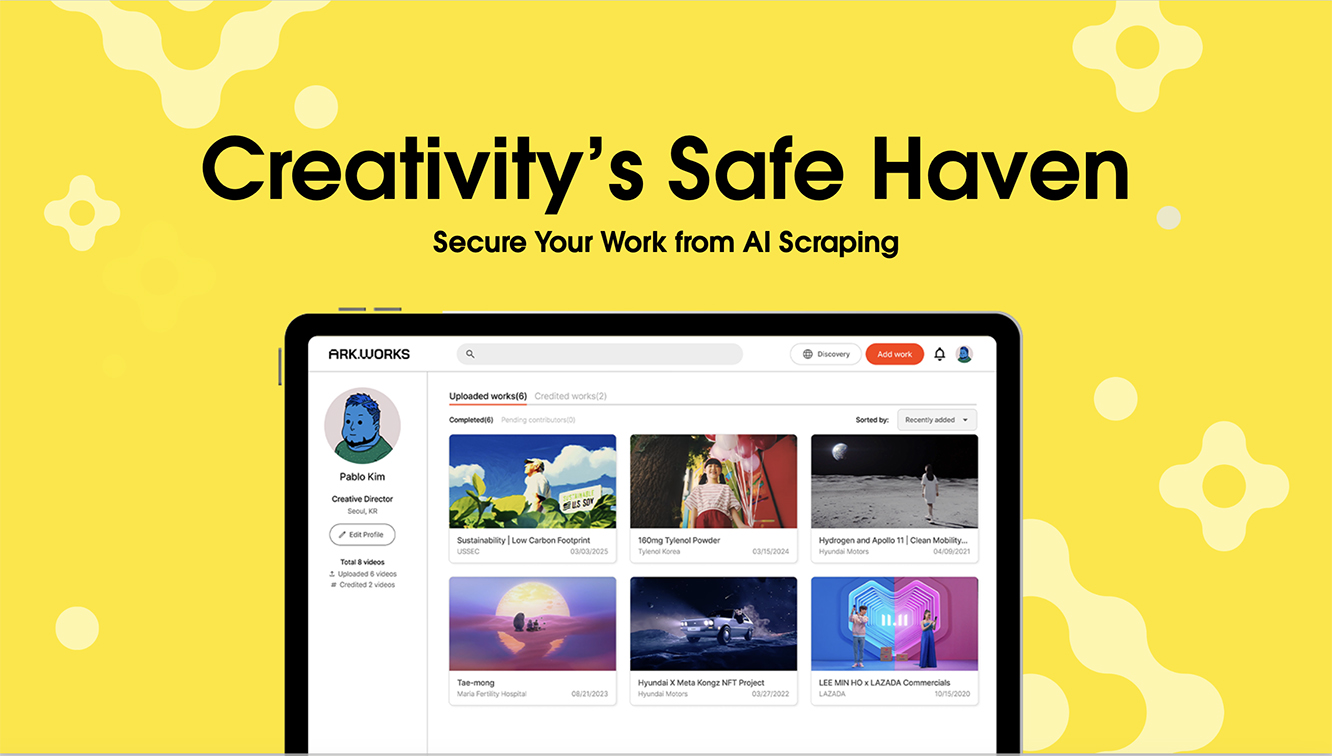Korea’s Paulus Debuts Ark.Works at Cannes Lions 2025 — A Blockchain-Powered Response to AI’s Creative Dilemma

Amid the glitz and grandeur of Cannes Lions 2025, one independent Korean agency delivered a wake-up call to the creative world: in the age of AI, credit still matters.
On the final day of the festival, Paulus CEO Kyungsin Kim and CCO Thomas Hongtack Kim took the stage to pose a sharp question — when AI can recreate your style in seconds, who gets the credit?
They weren’t just asking. They came with an answer: Ark.Works, a blockchain-based tool designed to protect creators from the silent erosion of authorship in the era of generative AI.
From Ghibli Imitations to a Global Imperative
Opening the talk, Thomas Hongtack Kim unpacked the viral phenomenon of AI-generated “Ghibli-style” images sweeping social platforms. “Millions uploaded their photos. In seconds, they came back in the look of Miyazaki,” he said. “But Miyazaki never approved this. His name wasn’t even mentioned. Years of craft, repurposed without consent — and no way to push back.”
What’s at stake isn’t nostalgia. It’s ownership. And that, Kim argued, is what fuels all creative work — from Michelangelo to open-source developers. “If authorship disappears, so does the value of content. Then comes the collapse of careers, accountability, and ultimately, the creative ecosystem itself.”
The Solution: Metadata as a Moral Contract
Ark.Works, unveiled publicly for the first time at Cannes, offers a deceptively simple solution: embed creator names, roles, and AI learning permissions directly into the file metadata — then anchor it to the blockchain. That data is invisible to the viewer, but legible to AI. The result? A system that tells AI: this work is off limits.
“This is a new language,” said CEO Kyungsin Kim. “Not to fight AI, but to negotiate with it. A quiet line of code that says, ‘This belongs to someone.’”

Ark.Works uses the C2PA protocol, enabling creators to upload files, register collaborators, and automatically embed rights metadata — including AI learning bans. When generative AI scrapes that content, it meets a line it cannot cross, encoded in a format machines can read and respect.
And it doesn’t stop there. Each registered file is also logged immutably on a blockchain. Every role — editor, designer, writer — becomes a unique token. These tokens form the basis of a future ecosystem where creators can verify credit, prove participation, and, eventually, receive rewards based on contributions.
Born from Creative Struggle
For Kim, the mission is personal. “I’ve spent the past decade working with creators across the world,” he shared. “Every project was hard. But that’s why the work is sacred. And why we have to protect it.”
He also issued a gentle warning: “Generative AI gives us outcomes without effort. That convenience risks undermining the very value of creative labor — which has always gained meaning through struggle, not shortcuts.”
Ark.Works is developed by Kim’s new venture, Re-Be World, with ambitions to evolve it into a global tool for a decentralized, respectful, creator-led digital ecosystem.
A Manifesto in a Tech Demo
At a festival teeming with spectacle, Paulus stood out by asking the industry to pause — and draw a line. Their talk wasn’t just a product launch; it was a manifesto. A call for balance. A reminder that technology should serve creativity, not erase it.
And in an age where “original” is often just a prompt away, Ark.Works quietly insists: This work is mine.


